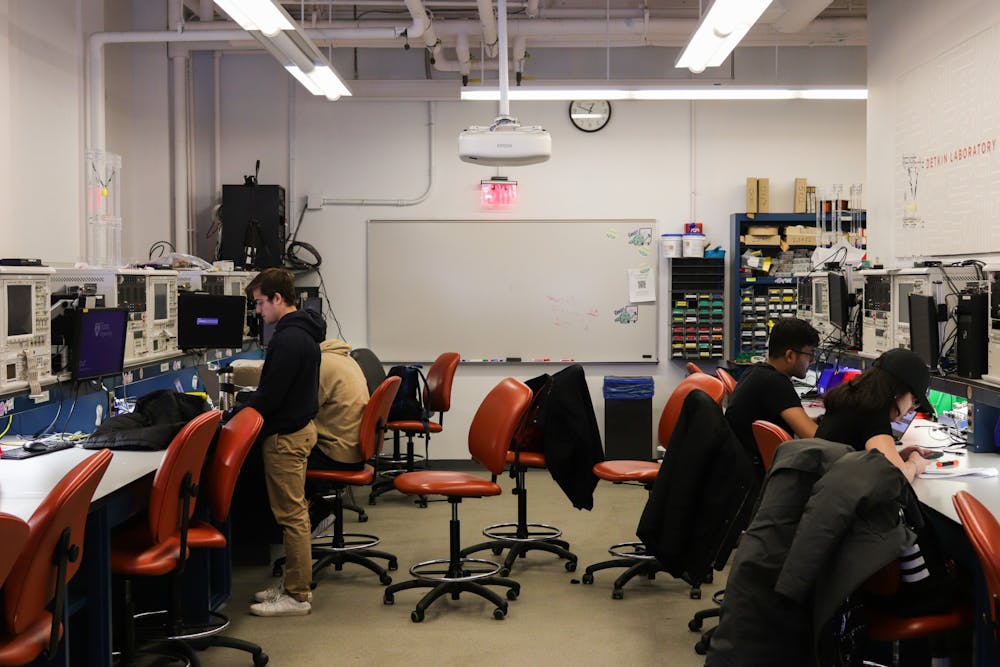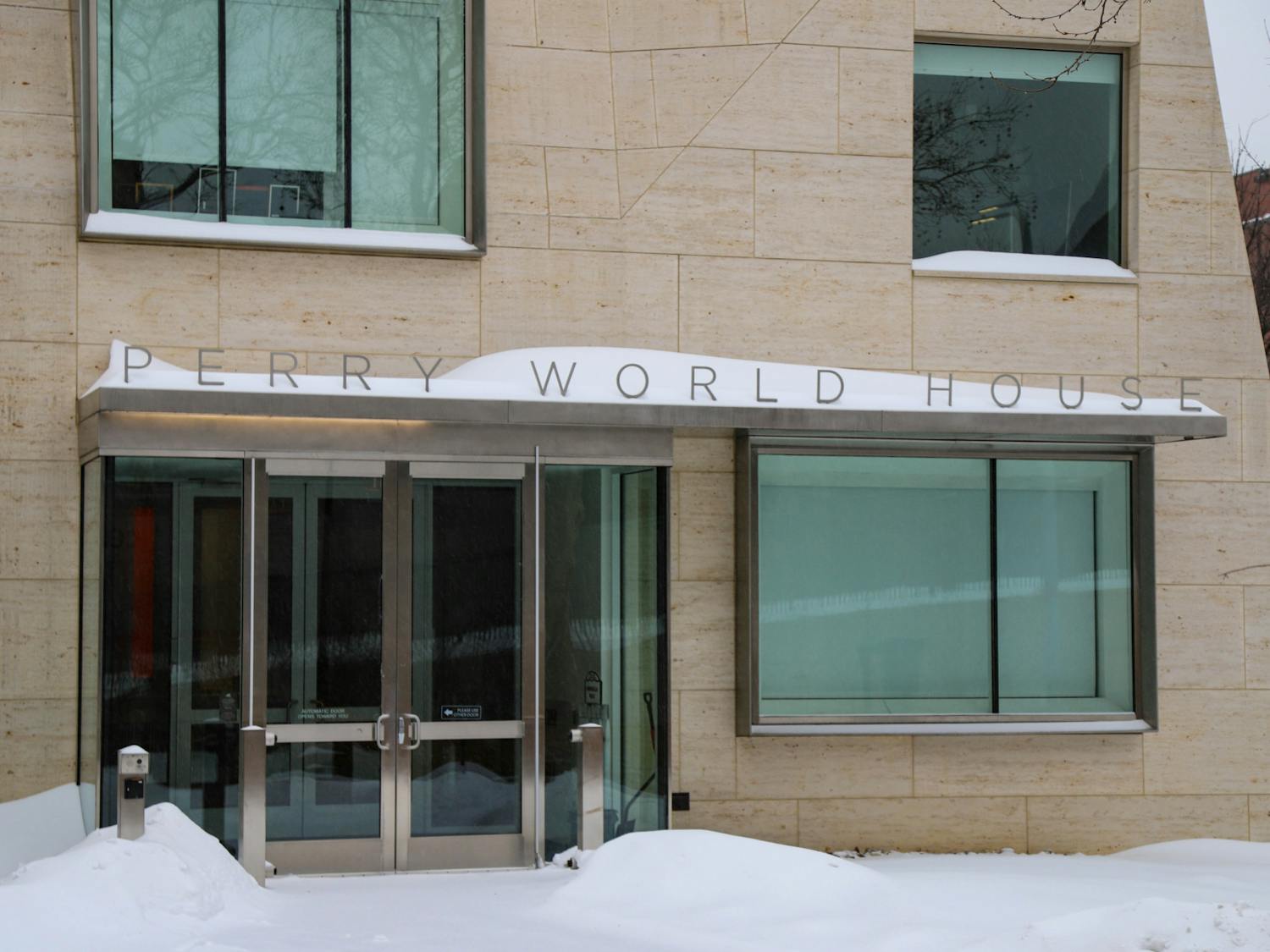Seventy-two Electrical and Systems Engineering Ph.D. students sent a letter to department leadership demanding an increase in the minimum doctoral stipend to $50,000 for the upcoming academic year.
The letter — which was sent to ESE Department Chair George Pappas, Associate Dean for Graduate Programs Boon Thau Loo, and ESE Graduate Chair Troy Olsson — comes after Penn announced the largest one-time increase to the minimum Ph.D. student stipend in December. In the letter, the ESE students requested greater recognition and benefits from the University, citing the increased popularity of their field.
Pappas and Olsson did not respond to multiple requests for comment. The Office of the Provost, which announced the stipend increase, declined to comment on the letter. In November, Penn increased the minimum Ph.D. stipend from $30,547 to $38,000 and this change will be in effect at the start of the 2023-2024 academic year.
“This one-time increase recognizes the unique pressures they currently face, especially in the wake of delays to research and hiring that many experienced during the COVID-19 pandemic,” Interim Provost Beth A. Winkelstein told Penn Today. “It will also help to ensure that Penn remains competitive in recruiting exceptional scholars in our Graduate Groups.”
In the letter, the ESE students wrote that "one could only conclude" that the University expects doctoral students to conduct "world-class research" while living "at or below the minimum standard of living."
According to a second-year ESE Ph.D. student, who requested anonymity due to fear of academic retaliation, the letter stemmed from a “general feeling” among the department’s graduate students about their Penn experience.
“We often discuss our financial situations when we’re sitting around the table at lunch,” the student said. “It got to a point where we felt like we needed to take some action to do something.”
The letter was drafted in December and circulated to Ph.D. students around the department by word of mouth, according to third-year Ph.D. student Damian Owerko. When the letter was sent to the ESE Department leadership on Dec. 19, 72 people had signed it.
RELATED:
Guest Column by five GET-UP members | Penn must provide funding extensions for all doctoral students
GAPSA votes to pass $3.5 million annual budget with large carryover from past years
In the letter, the students emphasized the benefits that the University gains from ESE research, highlighting the projected 15 percent growth in demand for employment in computing and information sciences over the next decade.
The letter further said that Penn's plans to invest $750 million in engineering and data science infrastructure will attract top students and faculty to the university, creating a “robust cycle of innovation and research excellence.”
The second-year student cited the importance of his research as his primary reason for signing the letter.
“From our phones to the machines we interact with on the streets, the machine learning systems I study permeate many aspects of our lives,” the student said. “To be able to conduct this research, you need to be comfortable and have a livable wage.”
In the letter, the students also pointed to Penn’s “national reputation for undervaluing and mistreating its students,” citing news coverage of Penn graduate Mackenzie Fierceton, a low-income student. Fierceton alleged last year that University officials unjustly retracted Fierceton's Master of Social Work degree. Last April, Penn announced it would no longer withhold her degree.
Owerko said that a lack of value placed on his work by the University and its resulting toll on graduate students' mental health and quality of life were his main reasons for contributing to and signing the letter.
“It can be demoralizing to see my peers from undergrad progress into their careers while I’m still a student,’” Owerko said. “I often ask myself ‘What am I doing here?’ If the University doesn’t value my work, maybe I shouldn’t be here.”
While acknowledging the generosity of the initiative, the ESE students argue that the stipend barely surpasses the minimum living wage for Philadelphia County and lags behind the minimum standard of living for single parents and families.
The second-year student believes that the stipend has a significant impact on the decisions that graduate students are able to make about their personal lives.
“Towards the end of your Ph.D., you’re close to 30 [years old] and are ready to make big steps in life,” the student said. “Many of us want to do things like get married, but the Ph.D. stipend can restrict us from being able to do so.”
Owerko said that the lack of compensation draws ESE graduate students to summer internships and other opportunities that offer more lucrative pay. Last summer, he worked for Apple and made more per week than he makes in a month at Penn.
In addition to the stipend increase, some graduate students expressed an interest in focusing on broader issues affecting the doctoral student experience.
“I think broadly across the University, graduate students are pushing for better treatment," third-year ESE Ph.D. student Raghu Arghal said. "I think we are just a piece of that."
Several other universities across the country have implemented an increase in compensation for graduate students following the national intensification of graduate student unions and demands, including Yale University last April.
“We are passionate about what we do and we do not expect our experiences as Ph.D. students to be easy,” the letter from the Penn doctoral students said. “However, we hope you agree that living at or below the minimum standard of living is unacceptable for an institution such as Penn.”









